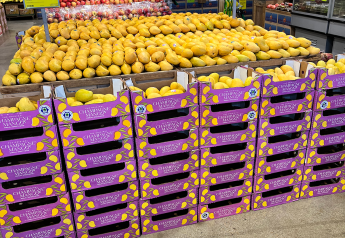‘Perfect Storm’ Makes Restaurant Recovery A Long Haul

It’s calculated due to the influence of the COVID-19 pandemic, 90,000 restaurants have closed either permanently or long-term. That according to Mike Whatley, vice president of state affairs and grassroots advocacy for the National Restaurant Association.
Whatley joined AgriTalk host Chip Flory to talk about the ongoing challenges facing the restaurant industry.
At the root of many of the woes of hospitality is labor, which Whatley says we are experiencing, “the perfect storm in terms of labor challenges we're seeing is really all across the country.”
“We're excited that there's a lot of pent up customer demand for a restaurant and being in person again because of the vaccine roll out,” he says. “One of the challenges that we're now facing is not having enough staff to actually meet demand.”
He cites some workers having safety concerns for working in a hands-on industry such as food service, and the association is advocating for increased vaccinations. Also the availability of childcare is limiting for some workers.
Whatley says many restaurants aren’t able to find enough workers to fill the seating capacities and all of their shifts. So many businesses are adjusting their hours based on their available workforce.
Dr. Michael Swanson, economist with Wells Fargo, says labor is the largest challenge facing restaurants.
“It's always about people,” he says. “We're still about 4 million people down from people who were working just a year ago."
The labor woes are compounding for businesses who have experienced 15 months of extreme hardship and rely on a summer surge of business, says Whatley.
“The Small business administration announced that the Restaurant Revitalization Fund or RRF which was a federal grants program to help restaurants cover those losses is officially out of money,” he says. “We had $28.6 billion that was there, and $75 billion was applied for. So you have restaurateurs who applied for money and planning that they would have hopefully get it, who are now being told, the money is gone. We need Congress to add more money to help restauranteurs who applied; this is critical.”
Another factor is the rising cost of food for restaurants, which the association says wholesale food prices are on track to post their largest annual increase since 2014.








